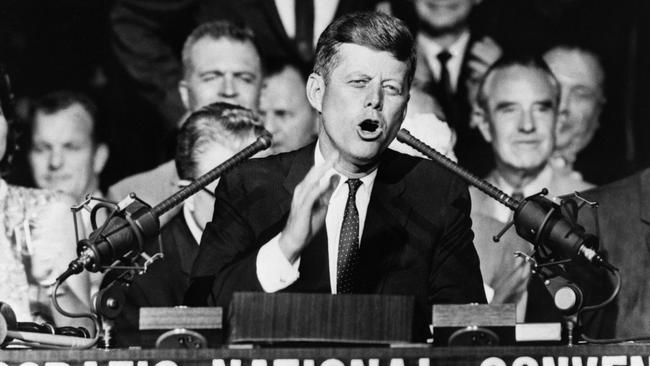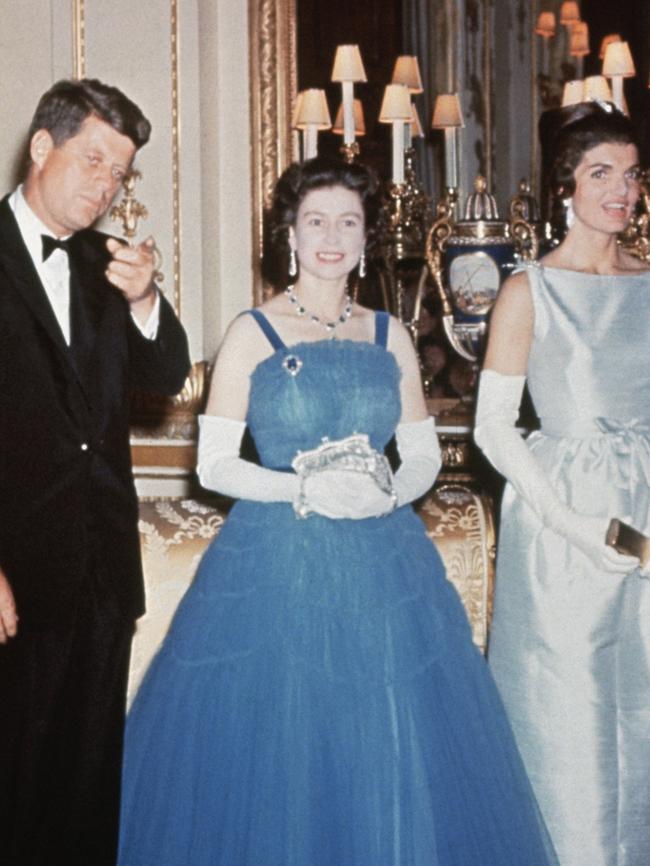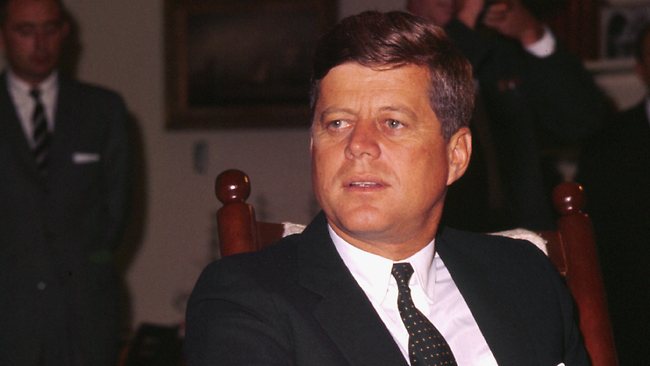
From the opening stanzas of his soaring inaugural address at the dawn of a new era, Kennedy dreamed big dreams for America and the world. He did not want to just be president; he wanted to be a great president.
He was young and radiated charisma, grace and style; believed in the nobility of public service and the presidency as a platform for national and international leadership; read widely about politics and history, fuelling his curiosity and intellect; learned from his mistakes and grew as a president; and could be wickedly funny and self-deprecating.
For many, Kennedy was inspirational. He made people believe in themselves and their potential. With the talents of speechwriter Theodore Sorensen, Kennedy was able to move audiences in town halls, or those listening on radio or watching on television, with the power of his oratory.
No modern president’s speeches are better remembered. In person, he could be charming and persuasive.
“Ask not what your country can do for you; ask what you can do for your country,” Kennedy instructed in his inaugural address on that bitterly cold day in 1961. It was a lyrical expression of hope, optimism and confidence rooted in the timeless American ideals of self-reliance, responsibility and service. Throughout his 1036-day presidency, Kennedy used these oratorical powers to advance his political and policy agenda.
In 1962, he reaffirmed the goal of landing a man on the moon and returning him to Earth by the end of the decade and explained that the scale of that challenge, and others, should be embraced “not because they are easy, but because they are hard”.

Kennedy was the first television president. He understood the power of the visual medium, the importance of imagery and celebrity, and how to harness it. Politics was the family business; one grandfather had been mayor and another a state legislator, his father an ambassador.
His World War II heroism and intellectualism, underscored by a Pulitzer prize, were part of the Kennedy mystique. So were the photographs of wife Jackie and children Caroline and John Jr in the pages of Life, Time and Newsweek.
He also used weekly televised press conferences to charm the White House press corps and appeal directly to voters watching at home. It was a very different style of presidency to Dwight D. Eisenhower, a respected but stiff figure from a bygone era. Kennedy was more accessible, used the medium as a mass communication tool and made it essential to his presidency.
The 1960 campaign debates with Richard M. Nixon were a turning point in politics. The tanned Kennedy was relaxed, self-assured and gave authoritative well-rehearsed answers to questions. Nixon looked pale, uncomfortable and often was long-winded in his replies.
“It was TV more than anything else that turned the tide,” Kennedy said of his narrow election victory.
Leaders must have a vision, be able to persuade, and possess the necessary temperament and judgment to manage crises. Kennedy’s vision for America and the world, namely the fight against communism, was well established. His command of language and communications skills were unrivalled. But, as he wrote in Profiles in Courage, “great crises make great men”.
Kennedy faced two notable challenges: the Bay of Pigs invasion of Cuba in 1961 and the installation of Soviet missiles in Cuba in 1962. He accepted responsibility for the botched CIA plan to topple Fidel Castro, learned critical lessons, and his approval rating climbed to 82 per cent. His cool-headed peaceful resolution of the 13-day Cuban missile crisis, ignoring demands from military chiefs to bomb or invade Cuba, brought the world back from the brink of nuclear war. This alone elevates Kennedy’s presidency well above the average.

The Peace Corps and Nuclear Test Ban Treaty are worthy achievements. He was a fiscal conservative who advocated balanced budgets and tax cuts. He increased US involvement in Vietnam but stopped short of sending combat troops. Kennedy was slow to act on civil rights but did protect freedom riders, enforce university integration in the south and submitted a comprehensive bill to congress that his successor, Lyndon B. Johnson, would render into law.
Political leaders should be judged on their public rather than private lives. But character matters when assessing a full life. Kennedy was a serial adulterer. He covered up the extent of his health problems. Yet voters gave him an astonishing 90 per cent retrospective approval, according to Gallup this year, far ahead of any other modern president. C-SPAN’s survey of presidential historians rates him highly, too, at eighth out of 45 presidents.
The tragic and traumatic nature of Kennedy’s death has shaped perceptions of his presidency. There also have been many attempts to sanitise his flaws and sentimentalise his achievements, not least the Camelot lore. We need to assess his legacy not through the prism of his death but by what he did in life. If we do so, his exalted place in history is earned.








In early 1962, John F. Kennedy invited David Herbert Donald, renowned scholar of Abraham Lincoln, to the White House. “How do you go down in history books as a great president?” Kennedy asked. He wondered if Lincoln would be judged great if he had not been assassinated. Donald later wrote to a friend that Kennedy was eager to unlock “the secret” to greatness.